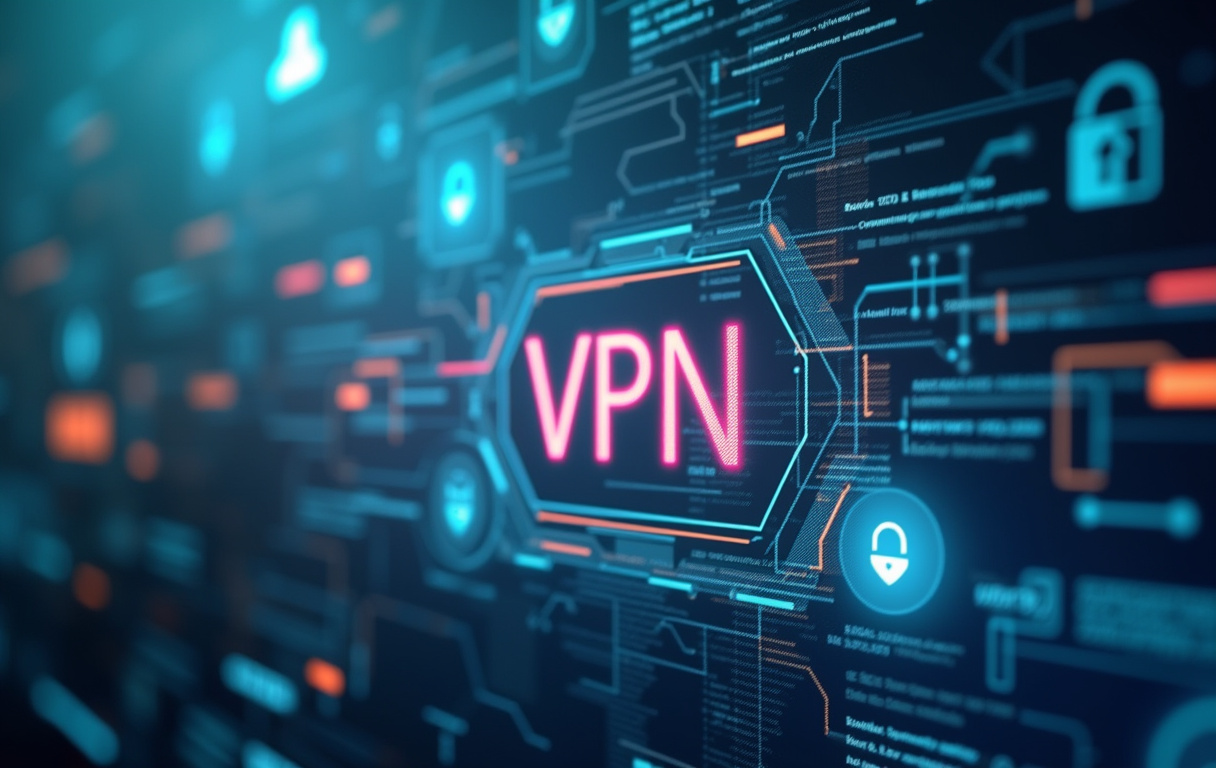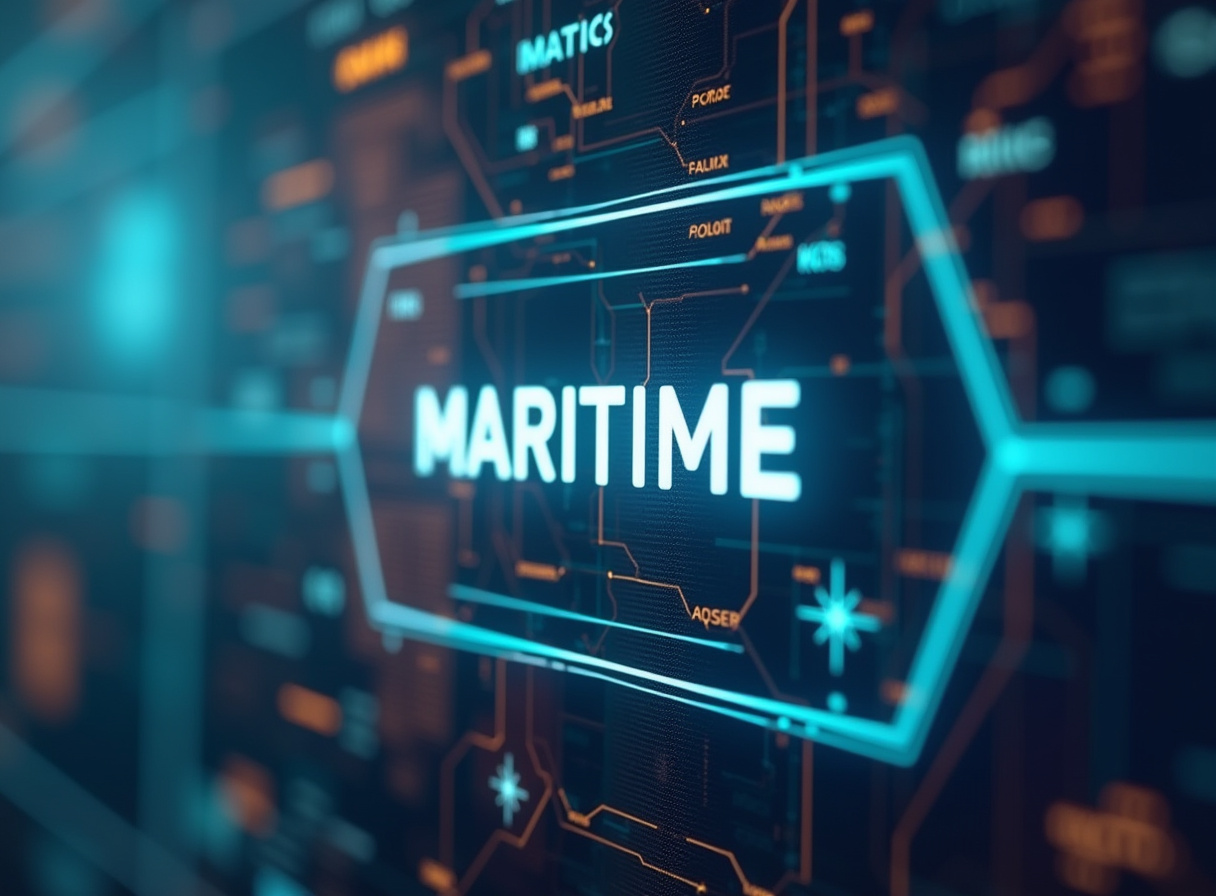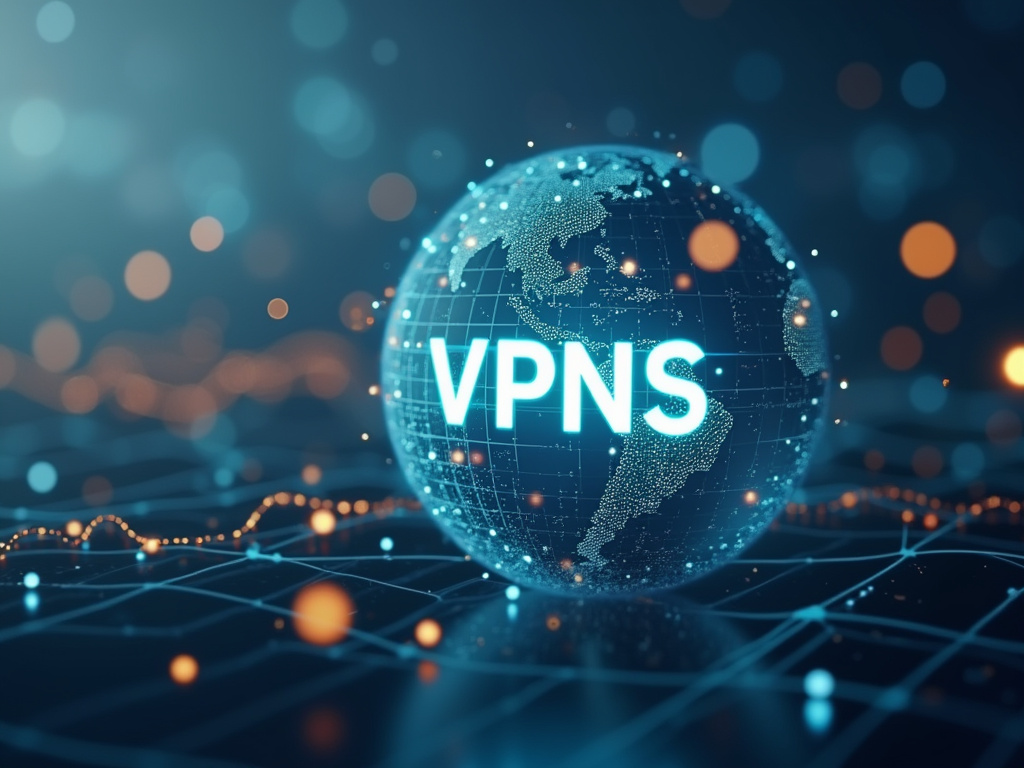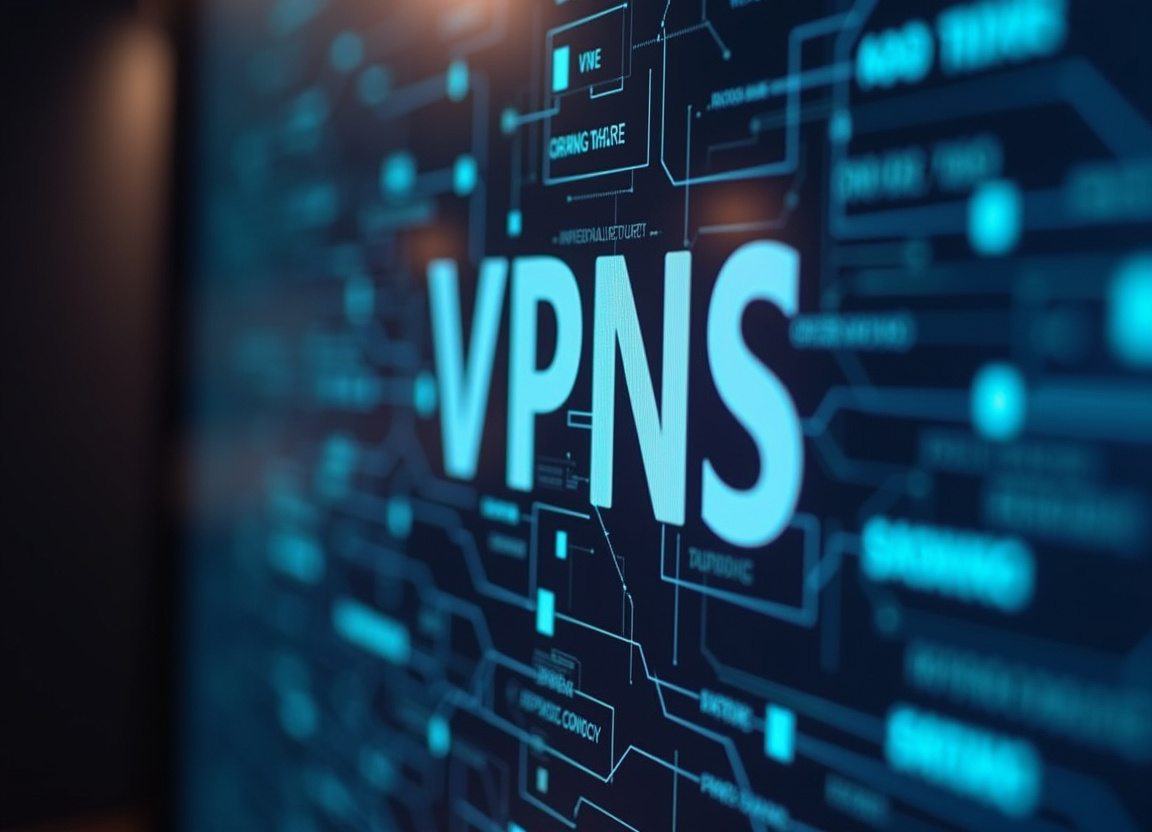VPNs for Maritime Networks: Protecting Vessel Communications

Table of Contents
- Securing Maritime Communications: An Introduction to VPNs
- Understanding the Risks: Cybersecurity Challenges in Maritime Networks
- Implementing VPNs: A Practical Guide for Maritime Vessels and Infrastructure
- VPNs for Maritime Services: Enhancing Security and Privacy for Subscription Platforms
- The Future of Maritime VPNs: Security, Innovation, and Subscriber Protection
Securing Maritime Communications: An Introduction to VPNs
In the dynamic world of maritime operations, where vessels traverse vast oceans and rely heavily on digital communications, ensuring the security of vessel communication is paramount. This article delves into the critical role of VPNs in protecting maritime networks, exploring how they safeguard data integrity, enhance navigation security, and contribute to overall operational resilience. As the maritime industry increasingly embraces digital technologies, it also faces a growing number of cyber threats, making the implementation of robust security measures, such as maritime VPNs, an essential investment for any modern shipping company.
These specialized VPNs provide a secure, encrypted pathway for all vessel communications, essential in today’s interconnected but highly vulnerable digital landscape. Maritime VPNs are not merely an added layer of security but an integral component of a comprehensive cybersecurity strategy, crucial for maintaining operational integrity and protecting sensitive information. The ability to transmit data securely between vessels, shore-based operations, and various maritime authorities is vital for efficient navigation, logistical coordination, and regulatory compliance, making the adoption of VPN technology a game-changer for the industry.
A secure maritime network, fortified by a robust VPN implementation, ensures that critical data related to vessel management, cargo handling, and crew welfare remains shielded from potential cyber threats. The digital transformation within the maritime industry offers incredible efficiency and connectivity advantages, but it also presents new cybersecurity challenges that should be addressed proactively. Maritime VPNs offer a practical, reliable solution, enabling businesses to protect sensitive information and adhere to high operational standards.
As cyberattacks become more sophisticated, the maritime industry must stay ahead by adopting advanced security technologies and strategies. This includes investing in employee training, conducting regular security audits, and keeping software and systems up to date. Maritime VPNs are an integral component of a more comprehensive cybersecurity defense framework.
The benefits of implementing maritime VPNs are extensive. They include encrypted communication channels, protection against data breaches, maintenance of data integrity, navigation security, and regulatory compliance. By adopting these robust security measures, the maritime sector can navigate confidently in an increasingly digital world, ensuring both safety and efficiency.
Securing vessel communication is also a significant investment in reputation and credibility, where a data breach or cyber incident can have severe consequences, eroding customer trust and damaging the reputation of the shipping company. Ensuring that your fleet’s communications are secure isn't just about preventing attacks, it’s about building trust and demonstrating a commitment to data protection. This is especially crucial when regulations like GDPR and other data privacy laws require companies to demonstrate a strong commitment to protecting personal data.
Therefore, maritime VPNs are a crucial tool for both security and compliance purposes. Maritime VPNs not only secure communications but contribute significantly to the resilience of vessels. By implementing robust security measures, the maritime sector can navigate confidently in an increasingly digital world, ensuring both safety and efficiency.
The ultimate goal of a maritime VPN is to provide end-to-end security. This involves encrypting data at the source, transmitting it securely through the VPN tunnel, and decrypting it only at the intended destination. This ensures that data is protected throughout its entire journey, reducing the risk of interception or manipulation.
Understanding the Risks: Cybersecurity Challenges in Maritime Networks
The core benefit of using a maritime VPN is the establishment of secure and encrypted communication channels. When a vessel connects to the internet, whether via satellite, shore-based networks, or other means, all data transmitted is vulnerable to interception. A maritime VPN addresses this vulnerability by creating an encrypted tunnel between the vessel's devices and a secure server.
This encryption ensures that all data, including sensitive navigation information, commercial transactions, and crew communications, is indecipherable to unauthorized parties. This is critical for maintaining vessel communication security. Data integrity is another essential aspect of maritime VPNs.
Ensuring that data remains unaltered during transmission is vital, especially when dealing with navigation instructions, cargo details, and other critical information. VPNs use robust cryptographic protocols to verify the integrity of data, ensuring that it has not been tampered with during transit. This validation process protects against man-in-the-middle attacks and other forms of data manipulation that could compromise vessel safety and operational efficiency.
Navigation security is particularly enhanced through the use of maritime VPNs. Modern navigation systems rely heavily on digital data, including electronic charts, weather updates, and real-time positioning information. Compromising this navigation data can have catastrophic consequences.
By encrypting navigation data and securing access to navigation systems through a VPN, the risk of malicious interference is significantly reduced. The use of VPNs ensures safe and accurate navigation, reducing human error and minimizing the potential for maritime accidents. Furthermore, VPNs provide a layer of anonymity, obscuring the vessel's actual IP address and location, making it more difficult for cybercriminals to target the vessel directly.
This virtual cloaking adds an extra layer of security, protecting vessels from reconnaissance and potential attacks. The benefits of maritime VPNs extend beyond just encrypted communication. They also provide access control, ensuring that only authorized users can access sensitive systems and data.
By implementing strong authentication mechanisms, such as multi-factor authentication, VPNs prevent unauthorized access, reducing the risk of internal breaches and data leaks. VPNs also offer network segmentation capabilities, allowing maritime organizations to isolate critical systems and data on separate network segments. This reduces the risk of a breach spreading from one system to another.
For example, vessel control systems can be isolated from crew entertainment networks, preventing a compromise on the entertainment network from affecting essential vessel operations. The use of VPNs also enables secure remote management of maritime systems. Shore-based personnel can remotely access and manage vessel systems, such as engine controls and navigation systems, without compromising security.
This enables increased efficiency and reduced operational costs, as fewer personnel are required to travel to vessels for maintenance and updates. One of the key aspects of ensuring data integrity with maritime VPNs involves the use of cryptographic hash functions. These functions generate a unique "fingerprint" of the data before it is transmitted.
The receiving end then recalculates the hash and compares it to the original. Any discrepancy indicates that the data has been altered, either maliciously or accidentally. This process is essential for ensuring that critical information, such as software updates or configuration settings, are delivered without modification.
Maritime VPNs also provide a secure log repository for all network activity. By centralizing and securing logs, organizations can monitor network access, detect anomalies, and respond to security incidents more effectively. Secure logging is crucial for compliance with regulatory requirements and for conducting forensic investigations in the event of a breach.
In addition to protecting against external threats, VPNs also safeguard against internal threats. By controlling access to sensitive systems and data, VPNs reduce the risk of data leaks, sabotage, and other malicious activities. This is particularly important in the maritime industry, where a large number of personnel, including crew members, contractors, and port workers, may have access to vessel systems.
Implementing VPNs: A Practical Guide for Maritime Vessels and Infrastructure
VPNs for shipping have a wide range of applications across various maritime operations. One of the most critical applications is securing communication between vessels and shore-based operations. This includes data related to vessel management, logistics, maintenance, and administrative tasks.
By encrypting this communication, the risk of data breaches and unauthorized access is reduced. Another crucial application is protecting communication between vessels and port authorities. This communication often involves sensitive information related to cargo manifests, customs declarations, and security protocols.
Securing this data is essential for maintaining port security and preventing illegal activities. VPNs also play a vital role in enabling secure remote access for crew members. Crew members often need to access corporate networks, email, and payroll systems while at sea.
A maritime VPN provides a secure and private connection, protecting their credentials and ensuring the confidentiality of their personal and financial information. The increased use of Internet of Things (IoT) devices on vessels, such as sensors, monitoring systems, and automated controls, presents new security challenges. These devices often lack built-in security features and can be easily compromised.
A maritime VPN can isolate these devices on a separate network, reducing the risk of a breach spreading to critical systems. Furthermore, VPNs are used to protect against denial-of-service (DoS) attacks, which can disrupt vessel operations and prevent access to essential services. By masking the vessel's IP address and filtering malicious traffic, VPNs mitigate the impact of DoS attacks, ensuring continuous availability of critical systems.
Maritime VPNs also support compliance with regulatory requirements, such as the International Maritime Organization's (IMO) cybersecurity guidelines and other data protection regulations. The growing demand for high-speed internet access on board vessels has resulted in greater adoption of satellite communication and other wireless technologies. These technologies are susceptible to eavesdropping and interference.
A maritime VPN can enhance the security of wireless communication, ensuring that data transmitted over satellite links remains confidential and protected. Specific use cases for maritime VPNs include secure transfer of electronic navigational charts (ENCs). ENCs are critical for safe navigation, and their integrity must be guaranteed.
By using a VPN, maritime organizations can ensure that ENCs are securely transferred and updated, preventing unauthorized modifications or tampering. Another important application is protecting vessel tracking data. Vessel tracking systems provide real-time information about a vessel's location and movement.
This data is highly valuable for logistics, security, and regulatory purposes but can also be exploited by malicious actors. A maritime VPN can secure vessel tracking data, preventing unauthorized access and ensuring its accuracy and reliability. VPNs also facilitate secure voice over IP (VoIP) communication for crew members and vessel operators.
VoIP communication is cost-effective but can be vulnerable to eavesdropping. A VPN encrypts VoIP traffic, ensuring the privacy of conversations and preventing unauthorized access to sensitive information. The implementation of maritime VPNs also supports secure software updates for vessel systems.
Ensuring that vessel systems are running the latest software is essential for patching vulnerabilities and maintaining optimal performance. A VPN ensures that software updates are delivered securely and without modification, preventing malicious code from being injected into vessel systems. In addition, VPNs are used to secure communication between vessels and remote pilot stations.
Remote pilot stations allow shore-based pilots to assist vessels navigating through narrow or hazardous waters. A VPN ensures secure communication between the vessel and the remote pilot station, preventing unauthorized access to vessel controls and ensuring safe navigation.
VPNs for Maritime Services: Enhancing Security and Privacy for Subscription Platforms
Implementing a maritime VPN requires careful planning and consideration of unique challenges associated with the maritime environment. One key consideration is the selection of a suitable VPN protocol. Several protocols are available, each with its own strengths and weaknesses.
Common protocols include OpenVPN, IPsec, and WireGuard. OpenVPN is a widely used, open-source protocol known for its flexibility and strong security. It supports a variety of encryption algorithms and can be configured to run over TCP or UDP, making it adaptable to different network conditions.
IPsec is another popular protocol that provides robust security and interoperability. It is often used in hardware-based VPN solutions and is supported by many network devices. WireGuard is a relatively new protocol that is gaining popularity due to its speed and simplicity.
It uses state-of-the-art cryptography and is designed to be lightweight and easy to configure. Once you have selected a VPN protocol, the next step is to choose a deployment model. Maritime VPNs can be deployed in several ways, including using dedicated hardware appliances, software-based VPN servers, or cloud-based VPN services.
Hardware appliances offer high performance and dedicated resources but can be more expensive and require specialized expertise to manage. Software-based VPN servers are more flexible and cost-effective but may require more configuration and maintenance. Cloud-based VPN services offer scalability and ease of use but require careful consideration of data privacy and security.
Another important consideration is bandwidth management. Maritime networks often have limited bandwidth, especially when using satellite communication. It is essential to implement traffic shaping and prioritization techniques to ensure that critical traffic, such as navigation data and voice communication, receives priority over less important traffic.
VPNs can be configured to prioritize traffic based on application, protocol, or user, ensuring that critical services are always available. Furthermore, it is important to consider redundancy and failover mechanisms. Maritime networks are subject to outages and disruptions due to weather conditions, equipment failures, or cyberattacks.
It is essential to implement redundant VPN servers and automatic failover mechanisms to ensure continuous connectivity. VPNs can be configured to automatically switch to a backup server in the event of a failure, minimizing downtime and ensuring uninterrupted communication. Security auditing and monitoring is also a crucial aspect of maritime VPN implementation.
Regular security audits should be conducted to identify vulnerabilities and ensure that the VPN is configured correctly. Monitoring tools should be used to track network activity, detect anomalies, and respond to security incidents in a timely manner. VPNs provide detailed logs of network activity, which can be used for security auditing and monitoring purposes.
Training and awareness programs are essential for ensuring that crew members and vessel operators understand the importance of VPN security and how to use the VPN correctly. Training programs should cover topics such as password security, phishing awareness, and safe internet browsing practices. Regular awareness campaigns should be conducted to remind users of the importance of security and to educate them about new threats.
The integration of VPNs with other security technologies, such as firewalls, intrusion detection systems, and endpoint protection software is also important. A multi-layered security approach provides comprehensive protection against cyber threats. VPNs should be configured to work seamlessly with other security technologies, sharing threat intelligence and coordinating responses to security incidents.
The Future of Maritime VPNs: Security, Innovation, and Subscriber Protection
In conclusion, maritime VPNs are an indispensable tool for protecting vessel communication security in an increasingly digital and interconnected maritime industry. By providing secure, encrypted communication channels, ensuring data integrity, and enhancing navigation security, VPNs mitigate the risks associated with cyber threats and contribute to the overall operational resilience of vessels. The benefits of implementing maritime VPNs extend beyond just security, encompassing compliance with regulatory requirements, improved operational efficiency, and enhanced crew welfare.
As the maritime industry continues to embrace digital technologies, the need for robust cybersecurity measures will only grow. Organizations that invest in maritime VPNs and other security technologies will be better positioned to navigate the evolving cyber threat landscape and maintain a competitive advantage. The selection of a suitable VPN solution depends on the specific needs and requirements of the maritime organization.
Factors to consider include the size of the fleet, the type of communication used, the available bandwidth, and the regulatory requirements. It is important to conduct a thorough assessment of these factors before selecting a VPN solution. The implementation of a maritime VPN should be viewed as an ongoing process, not a one-time event.
Regular security audits, monitoring, and updates are essential for maintaining the effectiveness of the VPN and protecting against emerging threats. Organizations should also invest in training and awareness programs to ensure that crew members and vessel operators understand the importance of VPN security and how to use the VPN correctly. Looking ahead, the future of maritime VPNs is likely to be shaped by several trends.
One trend is the increasing adoption of cloud-based VPN services. Cloud-based VPNs offer scalability, flexibility, and ease of use, making them an attractive option for many maritime organizations. However, it is important to carefully consider the data privacy and security implications of using cloud-based VPN services.
Another trend is the integration of VPNs with other security technologies, such as artificial intelligence (AI) and machine learning (ML). AI and ML can be used to automate threat detection, response, and prevention, making maritime VPNs more effective at protecting against cyber threats. Furthermore, the development of new VPN protocols and encryption algorithms will continue to enhance the security and performance of maritime VPNs.
These advancements will ensure that maritime organizations have access to the latest and most effective security technologies. As the maritime industry becomes increasingly reliant on digital technologies, the importance of maritime VPNs will only continue to grow. By investing in these essential security tools and adopting a proactive approach to cybersecurity, maritime organizations can protect their vessels, their crew, and their operations from the ever-evolving cyber threat landscape.
The integration of maritime VPNs should also align with broader international cybersecurity standards and best practices. This ensures that VPN implementations are not only robust but also interoperable with global security frameworks. By adhering to these standards, maritime organizations can demonstrate a commitment to cybersecurity excellence and enhance their reputation within the industry.
In summary, the strategic implementation of maritime VPNs is not just a security measure, but a business imperative that supports operational efficiency, regulatory compliance, and the safeguarding of valuable assets in an increasingly connected world. It is an investment that ensures the sustainability and security of maritime operations for the future.
Stay Updated
Get the latest VPN news, tips, and exclusive deals to your inbox.




